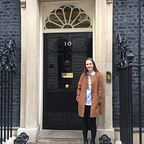Is Trump’s online ban the end of freedom of opinion?
On 8th January 2021, the current world of chaos went quiet. Twitter’s decision to silence Trump from his 88 million followers saw 34,000 of his presidential tweets deleted. This triggered a snowball of other social networks suspending the president, including Facebook, YouTube and Instagram.
Trump’s incitement of the Capitol Hill riots breached ‘public interest framework’ guidelines and was followed with the suspension of Republican Representative Marjorie Taylor Greene, after telling her followers to ‘mobilise’ against the Biden win. But this goes deeper than the silencing of individual republicans; apps such as Wimkin and Parler supporting “100% uncensored social media” have been banned from Apple’s App Store and Google Play for promoting far right extremism.
But if Silicon Valley now decide the ‘public’s interest’, is this a new age of network dictatorship?
Legally, tech companies have few restrictions. Twitter’s CEO Jack Dorsey (@Jack) monopolises on the freedoms inside a privately operated company and chooses who does and does not have access to tweet. We agree not to insight violent crime in exchange for an account, and that trade means Twitter is well within its rights to disable any user — albeit the former President. Any regulation of private companies in the US may prove to be an impossible task as the first amendment prevents any speech from governmental intrusion and cannot be easily shut down.
Yes, tweets inciting violent riots go against the legal terms and conditions, but the blocking of all future conservative views is starting to be viewed as a problematic act of political control.
Under Trump’s republicanism, the free market has traditionally left tech giants to police content themselves, but other right-wing leaders have gathered to tighten restrictions. The blocking of Trump, Taylor Greene and Parler and being likened to communist censorship by other conservative world leaders.
Poland’s prime minister Mateusz Morawiecki, who shares similar right-wing ideology to Trump, sees the Twitter ban as a direct threat to international conservatism. Morawiecki is not wasting time; five days after Trump’s online ban, the Polish Law and Justice (PiS) party drafted a law to make it illegal for tech companies to silence political opinions.
But the freedom of opinion is not a partisan right and both sides of the political divide have taken this as a threat of censorship. German Chancellor Angela Merkel has frequently clashed with Trump’s politics, and has clamped down hard on online hate speech in the past (with a fine of up to €50m) under The Network Enforcement Act. Yet her spokesman referred to the indefinite suspension as “problematic” as the freedom of opinion is a right of “elementary significance” which should not be censored by the digital media.
The UK will also use the June G7 summit in St. Ives to attempt to regulate big tech and stop the threat of online censorship. With no codified constitution, and therefore no written amendments to prevent governmental intrusion like the US, Boris Johnson may utilise the right to freedom of opinion to restrain tech giants online.
But this not only threatens the freedom of politicians, but also freedom from politicians. There is growing concern beginning to spark from states such as Russia, where vocal members of the opposition are scared this may set a precedent of online censorship used to silence their criticisms of the government. The Moscow riots this week saw video of police brutality and 3,300 people detained following the arrest of Russian opposition leader Alexei Navalny. The freedom of opinion can no longer take refuge online, outside the realms of physical beating on behalf of politicians. The power of unregulated big tech shutting down Trump could now threaten everyone.
Although tech giants are well within their means to suspend anyone, Trump’s social media ban has spiralled into an international frenzy of regulation for big tech. The online crackdown on free speech has threatened politicians and citizens alike, as they ask: can democracy only succeed offline?
